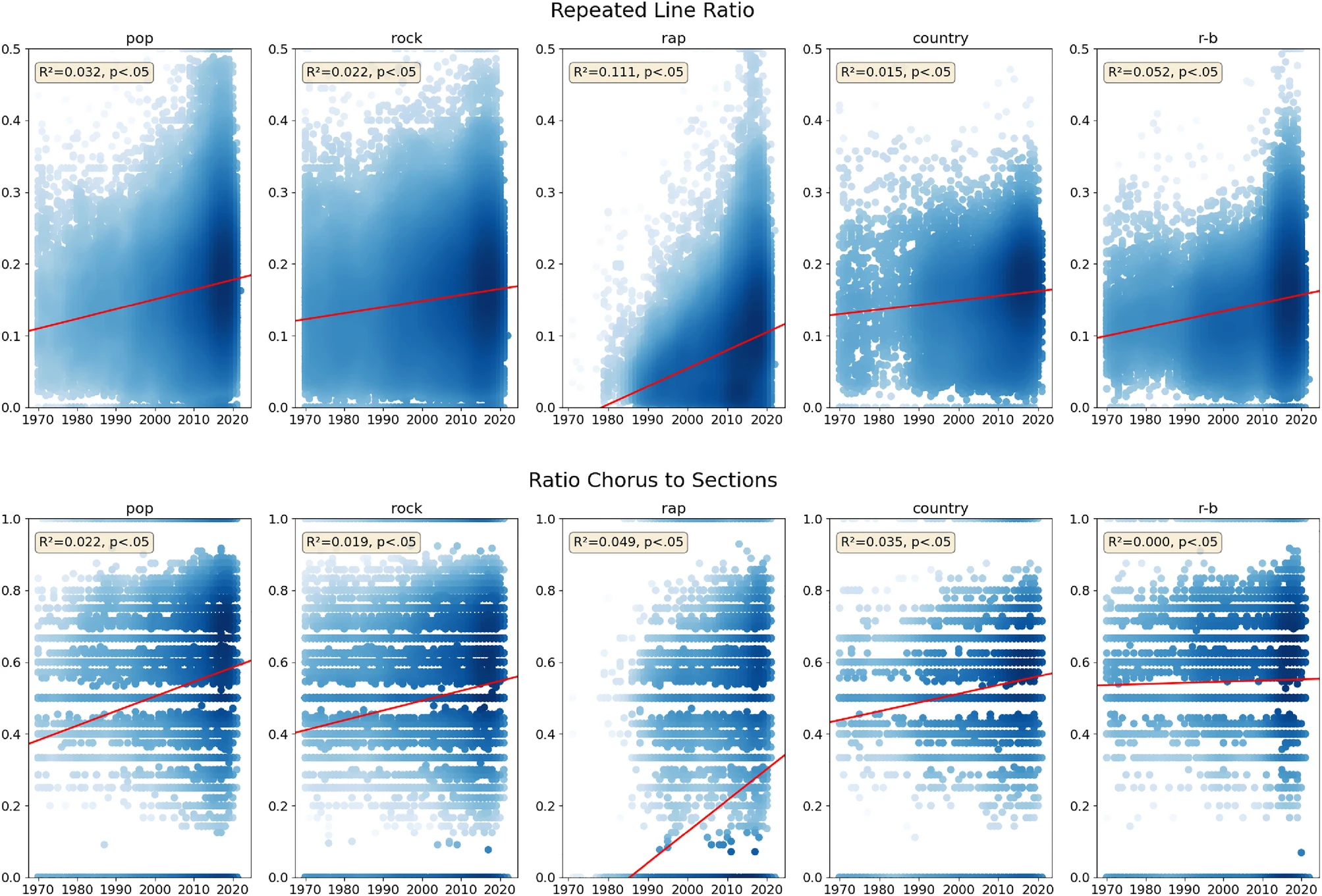A new study from the journal Scientific Reports has found that the lyrics of pop music have become simpler, angrier, more repetitive, more negative emotionally, and more personal in content over the last fifty years.
The five researchers who contributed to the report analyzed the lyrics of five different genres (rock, country, pop, rap, and R&B) of popular music, looking at complexity, structure, emotion, and popularity. They found that the “lexical complexity” (in terms of breadth of vocabulary and transparency of meaning) of lyrics has decreased and that the emotions expressed have become more negative and the stories told more personal to the singer.
Learn the benefits of becoming a Valuetainment Member and subscribe today!
From 1970 to 2020, the repetitiveness of lyrics across all five genres has increased, as represented by the red line in the first row. “This further substantiates previous findings that lyrics are increasingly becoming simpler and that more repetitive music is perceived as more fluent and may drive market success,” the researchers write, citing previous studies.
The main driver of the repetitiveness appears to be the increasing prevalence of choruses and the decreasing prevalence of “sections,” or verses, as represented by the red line in the second row.

The steepest increase in lyrical repetitiveness has been in rap, while the slightest increase was in country. Rap, however, remains less repetitive than country, and the least repetitive overall. The most repetitive genre is pop.
As for measuring how “personal” the lyrics were, the researchers measured the frequency of pronoun usage: this has increased in all genres except country. The strongest increase was rap, followed by pop.
All genres showed an increase in angry lyrics, with rap taking the lead. The negative emotions in lyrics also increased across all genres, with rap also taking the lead. Pop music showed a marked decline in positive emotions, as did rock, country, and R&B; rap showed a moderate increase. The genre with the smallest increase in anger and negative emotions was country.
The study also tracked listening habits, discovering that rock fans preferred old lyrics while country fans showed more interest in newer ones.
“We find that lyrics have become simpler over time regarding multiple aspects of lyrics: vocabulary richness, readability, complexity, and the number of repeated lines,” lead researcher Eva Zangerle wrote in conclusion. “Our results also confirm previous research that found that lyrics have become more negative on the one hand, and more personal on the other.”
They also offered a possible interpretation of the data points, writing they might reveal “changing sentiment in societies and shifts in the use of emotionally loaded words and the sentiment expressed in the lyrics consumed by the different audiences (age, gender, country/state/region, educational background, economical status, etc.).”

Shane Devine is a writer covering politics and business for VT and a regular guest on The Unusual Suspects. Follow Shane’s work here.


















Add comment